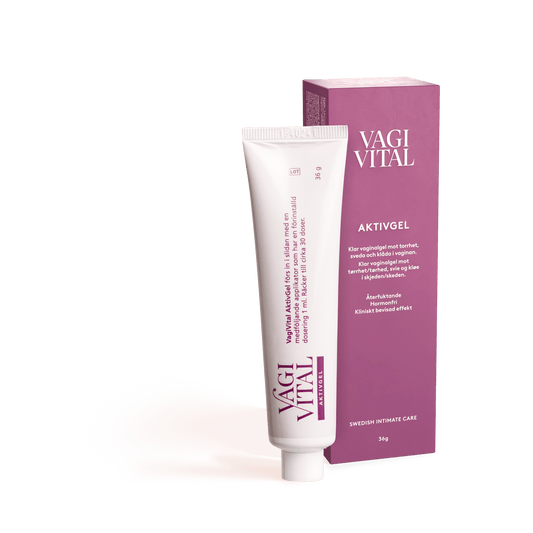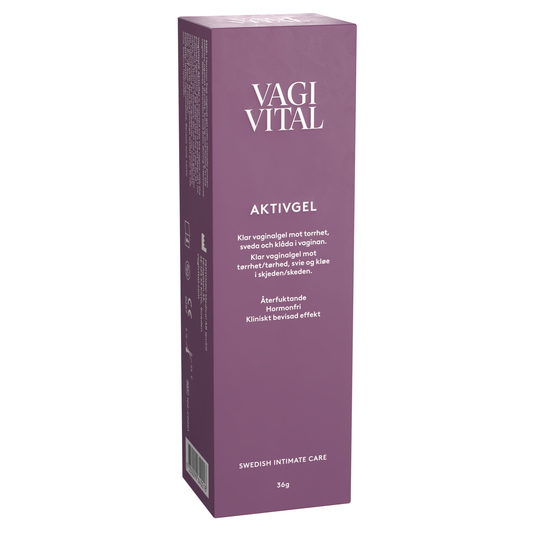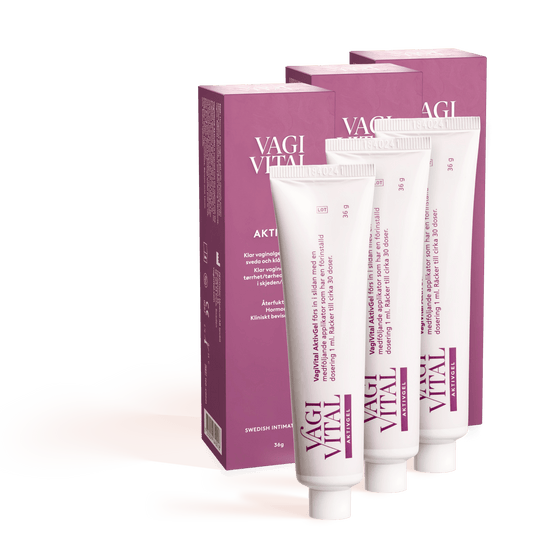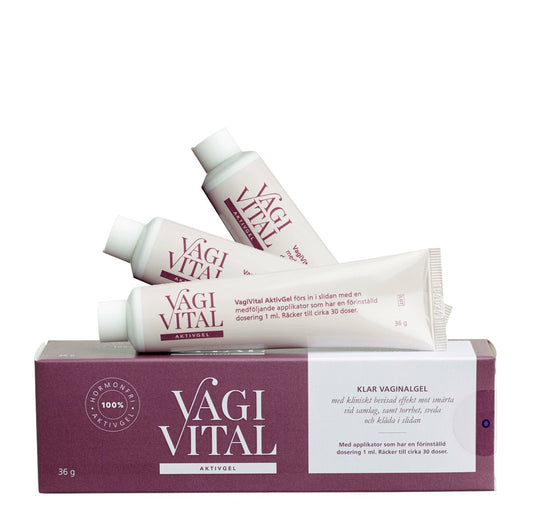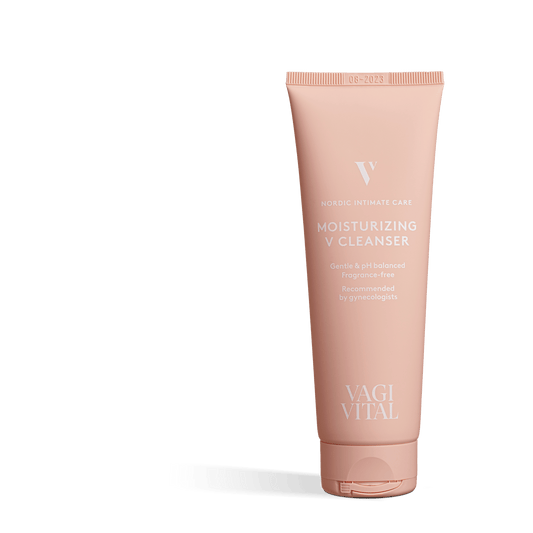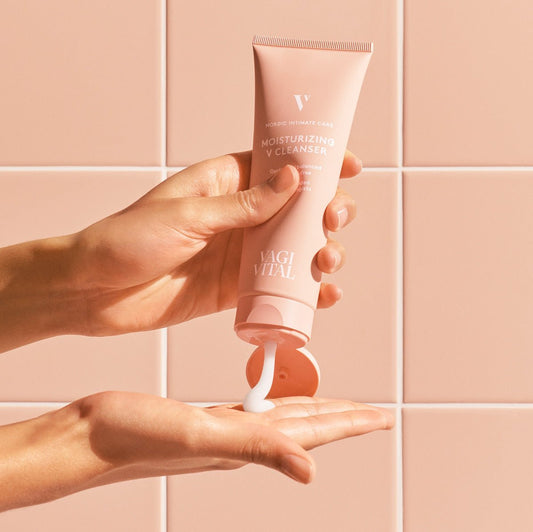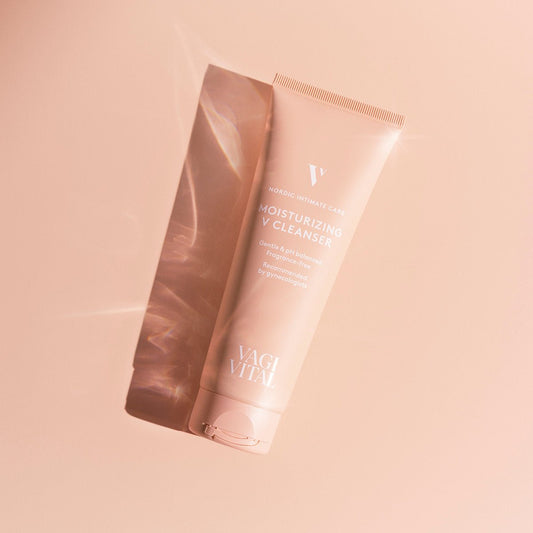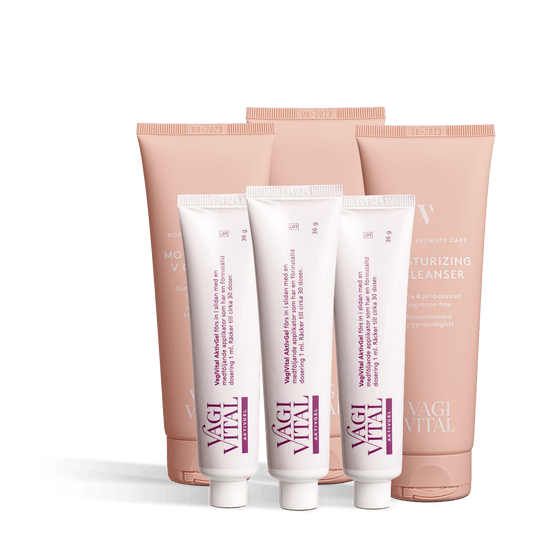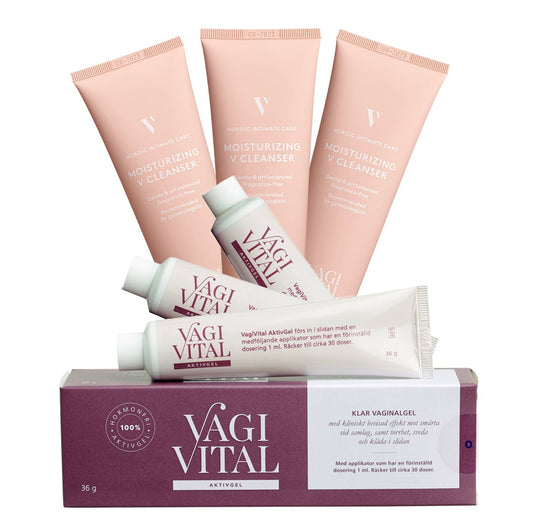Allergies and your vaginal health
If you have ever suffered from allergies, you know that the symptoms are far from pleasant. From itching to burning sensations, irritation, and swelling – all parts of the body can be affected by allergens – including your genitals. So which allergens should we watch out for and how can you protect your genitals from them? Read on and we'll explain!
Allergies and your genitals
Let us first describe how you can notice if your genitals have an allergic reaction to something. The truth is that it can be difficult to determine since many of the symptoms that indicate allergy, e.g. itching, burning sensations, swelling, and irritation, can be caused by several different conditions or problems. It could be that you are experiencing symptoms of menopause or a yeast infection.
If you experience any of these symptoms, we recommend talking to your doctor first and foremost. Then you can get a diagnosis and also a treatment plan on how to relieve the symptoms. Feeling shame or ignoring vaginal problems is not recommended – if your genitals suffer in any way, it is a sign that something is not right.
The best way to find out if allergies might be part of the problem is to keep a log of your symptoms and how often you notice the problems. Does it get worse after you've had sex with a condom? Or after you've eaten a certain type of food? By noticing these patterns, you can start to identify if allergens might be part of the problem, and this can be valuable information for your doctor as well.
Allergies caused by food and environment
Food and airborne allergies are some of our most common allergies and can be serious if your airways are affected. But the respiratory tract is not the only part of your body that can be affected if you come into contact with allergens.
Even if you don't eat food with your genitals, your vagina can still have an allergic reaction – if you eat something your body can't tolerate, you may notice how your genitals can become irritated or swollen – just like your throat!
The same applies if you inhale something that can trigger your allergies (such as pollen) – your genitals can then also have problems. Red, irritated eyes and itchy noses when pollen season is in full swing? It's not surprising if your genitals react in a similar way – you might not even notice that your discharge changes during allergy season! If you notice that your genitals itch or that your discharge changes during allergy season, it could be your body's response to allergens in the air.
Allergies to genital products
We know that our genitals are incredibly strong (just look at how childbirth works) but also very sensitive. The skin around our vagina is so sensitive because it is so porous, which means it easily absorbs substances in that area, whether they are good or bad for us.
Just as the rest of the body can have an allergic reaction to something you put on the skin, the vagina can also react. In fact, the genital area is the part of the body most likely to show an allergic reaction because the skin there is extra sensitive.
This is why it is so important to use products tailored to the genital area – and even then, it is important to consider the quality and ingredients of the products. If you think no genital products contain allergens, it is good to remember that this is not always true. Here are some common contributing factors to allergic reactions in the genital area.
Condoms
There are many reasons why someone can have an allergy to condoms – a latex allergy is the most common reason. A reaction to latex can occur immediately but also with some delay, so it can be difficult to determine whether the condom caused the itching or other symptoms. Many condom manufacturers today offer hypoallergenic ranges, so if you suffer from symptoms, it may be worth trying these condoms instead – don’t let your allergic reactions take away your choice of safe sex!
Other things to consider are additives in some condoms, such as flavors, scents, and colors. That cherry-flavored condom that glows in the dark may sound fun – but it can cause serious irritation in the vagina. If you notice allergic reactions, it may be worth choosing more natural than fun protection. The same applies to lubricants; many like to add a tasty lubricant to their sex life, but it may contain ingredients that can provoke a reaction from the genital area – and not a pleasant one. Natural and fragrance-free lubricants can still contribute to a wonderful and rewarding sex life.
Scents
When it comes to fragrances, scented products that claim to improve vaginal health can actually do the opposite. Many fragrances are created with a complex combination of ingredients – which we can be allergic to. Even if you are not allergic, you may still notice irritation in the body's more sensitive areas.
Choosing fragrance-free products can be a way to protect your genital area from potentially risky or irritating ingredients. VagiVitals Active Gel and VagiVital V Cleanser contains no fragrances, creating perfect products to maintain good intimate health.
References
Yogesh S. Marfatia, S. (2016). Genital contact allergy: A diagnosis missed. Indian Journal Of Sexually Transmitted Diseases And AIDS, 37(1), 1. Retrieved from https://www.ncbi.nlm.nih.gov/pmc/articles/PMC4857673/
Golpanian, R., Smith, P., & Yosipovitch, G. (2020). Itch in Organs Beyond the Skin. Current Allergy And Asthma Reports, 20(9). doi: 10.1007/s11882-020-00947-z
Recommended products for you
- Choosing a selection results in a full page refresh.
- Opens in a new window.
